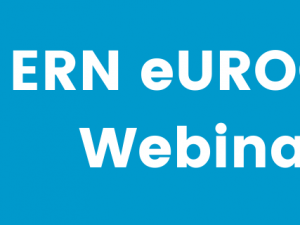
Naside Mangir, eUROGEN Clinical Data Specialist, attended the first general assembly meeting of the European Joint Programme on Rare Diseases (EJP RD) in Gdansk from 17-19 September 2019. The EJP RD is a 5-year programme co-funded by the European Commission to create a comprehensive and sustainable ecosystem for rare disease (RD) research.
Rather than conduct research on RDs, the programme will build the network, infrastructure and digital platforms that will promote cross-border sharing of clinical data, resources and know-how which will foster medical research and innovation on RDs. The EJP RD brings over 130 institutions from 35 countries, mainly from mainland Europe and associated partners in order to avoid fragmentation of resources. The EJP RD also aims to make use of, support, and link together already-funded tools operating within the field of RD research, such as European Reference Networks.
The EJP RD and the ERNs are working in close collaboration to join their efforts on research, registries and interpretation of data. Most importantly, the immediate introduction of innovative tools for the clinical care of RD patients are envisaged to be translated via the ERNs.
To achieve its goals the EJP RD is structured into ‘pillars’. At the September meeting of these pillars conducted separate sessions to report on their activities over the last year and plan for the upcoming year.
- Pillar 1 of the programme focuses on research funding including funding for networking, research training, innovative data analyses tools specifically designed for RD research, and small pilot studies.
- Pillar 2 of the programme aims to establish ‘coordinated access to data and resources’. They mainly work on adopting FAIR principles across all research and clinical activities in the field. This means that stored data (e.g. genetic data, health data, biobanks and patient registries) will be Findable, Accessible, Interoperable and Reusable.
- Pillar 3 aims at capacity building and this is where dedicated funds for ERNs will be available in the form of two-day workshops and short term research fellowships. The calls for applications will be announced in mid- October.
- Pillar 4 aims at accelerating the translation of research outputs and improving outcomes of clinical studies.
Naside found the first annual meeting of the EJP RD very thought-provoking and fruitful with all of the stakeholders brought together from very diverse backgrounds including geneticists, bioinformatics, clinicians, patients, computer scientists and basic scientists. We hope to see closer collaborations between EJP RD and ERNs in the near future.



